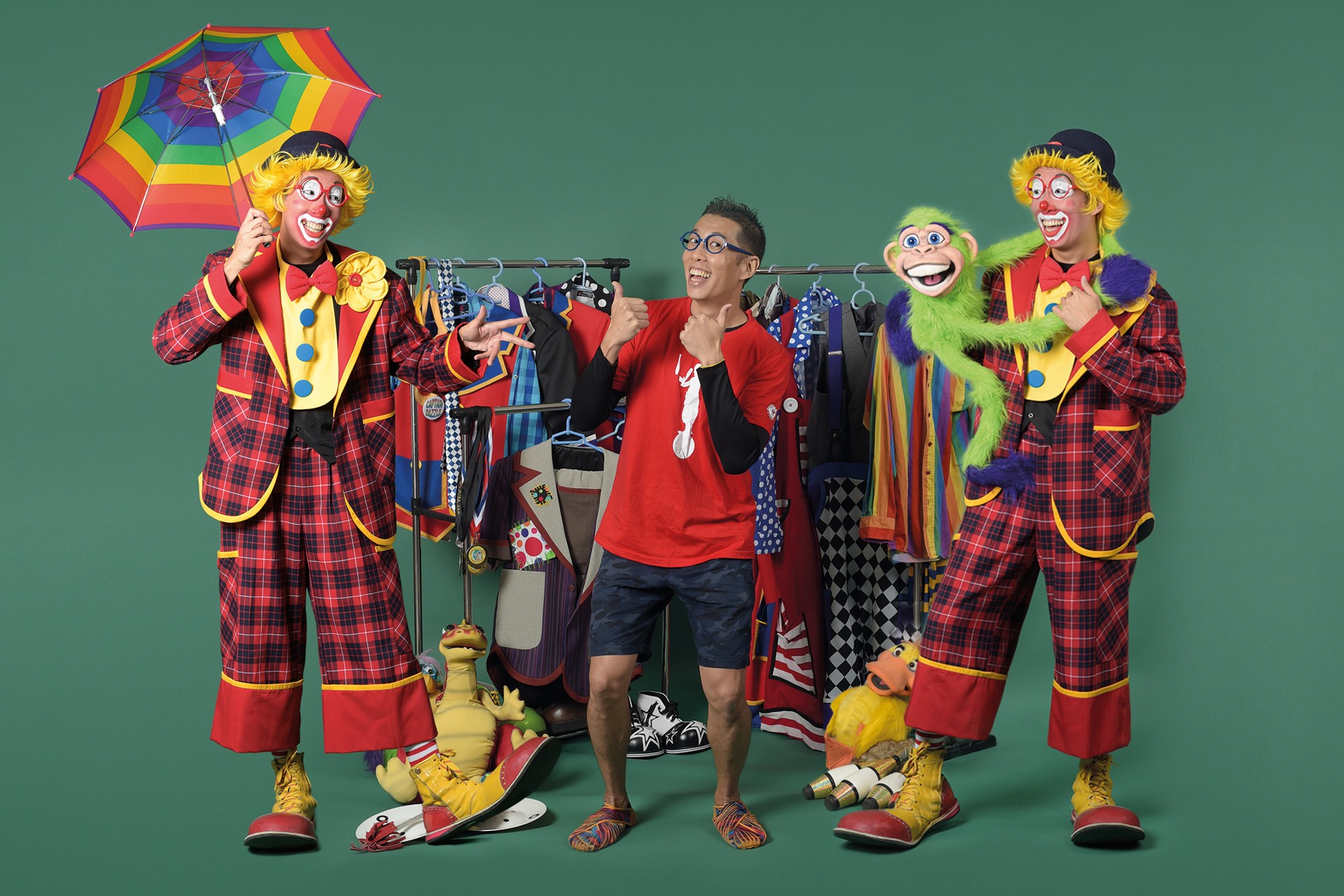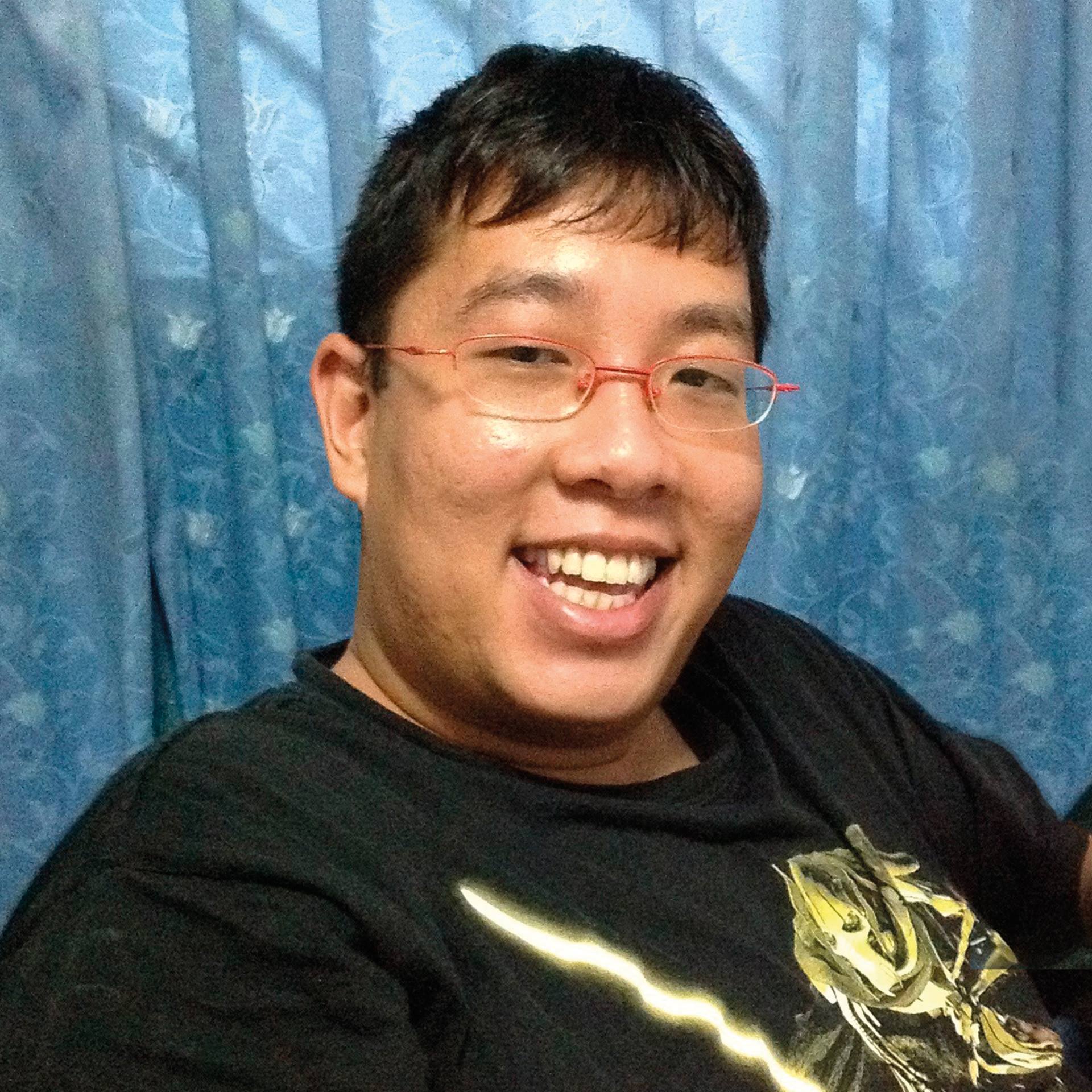PEOPLE
Clowning his way to the top
01 Nov 2018
1st Sergeant (1SG) (NS) Edmund Khong went from being a recluse with a gaming addiction to the best clown in the world.

1st Sergeant (1SG) (NS) Edmund Khong went from being a recluse with a gaming addiction to the best clown in the world.
He was making good money as a professional clown, entertaining children at parties with his magic tricks and juggling. His fee? A whopping $450 an hour.
But each time the performance ended, his smile would turn into a sad frown — he had become jaded after eight years in the business. This was in 2013.
"I was doing well in the first few years, but I lost my direction in life," said 1SG (NS) Khong.
"Clowning is supposed to be fun but it became a chore. Customers could tell and my bookings went down."
Turning point
He turned to gaming as an escape, shutting himself off from the world and hiding at home to play computer games almost round-the-clock.
Then 33, 1SG (NS) Khong had become mildly diabetic and tipped the scales at 95kg — thanks to a sedentary lifestyle during the one and a half years he was addicted to gaming. His doctor warned that if he did not do anything about his health, he would die in his 50s.
He started hitting the gym and lost more than 20kg in eight months. As it turned out, he enjoyed lifting weights so much that it "replaced" his gaming addiction.
World's best clown
Today, the 37-year-old has turned his life around. He is also the best clown in the world.
He won the top award at the 2018 World Clown Association (WCA) convention, beating 200 other clowns worldwide to clinch Best All Around Clown.
This title is given to the participant with the highest overall score in various aspects of clowning.
For getting the award a second consecutive year (he also won in 2017), 1SG (NS) Khong was given the title of Master Clown.
This makes him one of only four Master Clowns in the history of the WCA. The United States (US)-based WCA has over 2,000 members.
Clowning career
1SG (NS) Khong first developed an interest in magic tricks a few months before the end of his full-time National Service (NS). He taught himself by reading books and watching video tapes.
During university, he took up odd jobs performing at birthday parties and events. Along the way, he picked up skills like balloon sculpting, juggling, ventriloquism and clowning.
"The kids would ask me if I knew how to do this or that. I'm a very competitive person — when you throw me a challenge, I will take it up," he explained.
Determined to make clowning his full-time career after graduating from university, he attended a two-week camp in the US to hone his skills.
"I like children and that's why I chose this career. But I'm also trying to get adults to play. Singaporeans are not playing enough — as adults, we've somehow lost this playfulness," said 1SG (NS) Khong. He works with his wife, who handles the administration and finances.
A fulfilling NS
His competitive spirit also led him to make the most of his NS.
"I am not ‘a sit back and relax' kind of person; I was pretty involved with my unit. Before NS, I heard some people saying that (being in the) Army is a waste of time. I didn't want that to happen to me, so I made sure I participated as much as I could," said 1SG (NS) Khong.
Today, 1SG (NS) Khong still participates actively in NS. Just last month, the signal specialist completed the Cobra Challenge with his unit 76th Singapore Infantry Brigade. The Challenge is an annual physical competition for units in the 6th Singapore Division (6 DIV).
Setting new goals
The "just do it" spirit that he developed in NS has helped him to grow his business. Unlike some business owners who spend their time thinking about profitability, he went all out to improve his craft.
He attends overseas conferences and training, and spends thousands of dollars a year on new costumes and props.
"(There is a lot of competition and) the only way to move forward is to become better. If you are not growing, you are actually slowing down because everybody else is moving ahead," said 1SG (NS) Khong.
Winning world titles has opened doors for him, bringing him to Hong Kong, Japan and Indonesia for performances.
He is now focused on expanding his business overseas, especially in China and the US — not just in performing but also in teaching the art of clowning to budding performers.
"I want to plant seeds, to make sure clowning continues to grow."

At his heaviest, 1SG (NS) Khong tipped the scales at 95kg.

ALSO READ IN PEOPLE

When two hearts set sail together
13 Feb 2026
Naval engineers ME2 Gary Lim and ME2 Audrey Ho share how they navigate love, military service, and (soon) parenthood.

I’ve always got your back
11 Feb 2026
She’s an Army officer, and he’s the (NS)man supporting her dreams. CPT Koh Xinci and 3SG (NS) Nitro Chan share their love story with us – including their unique wedding!

He’s an NSF Commando & medal-winning fencer
28 Jan 2026
His team won gold at the SEA Games 2025, and he hopes to represent Singapore in more competitions to come. Meet fencer CPL Samuel Elijah Robson, who is serving as a Commando during his full-time NS.


